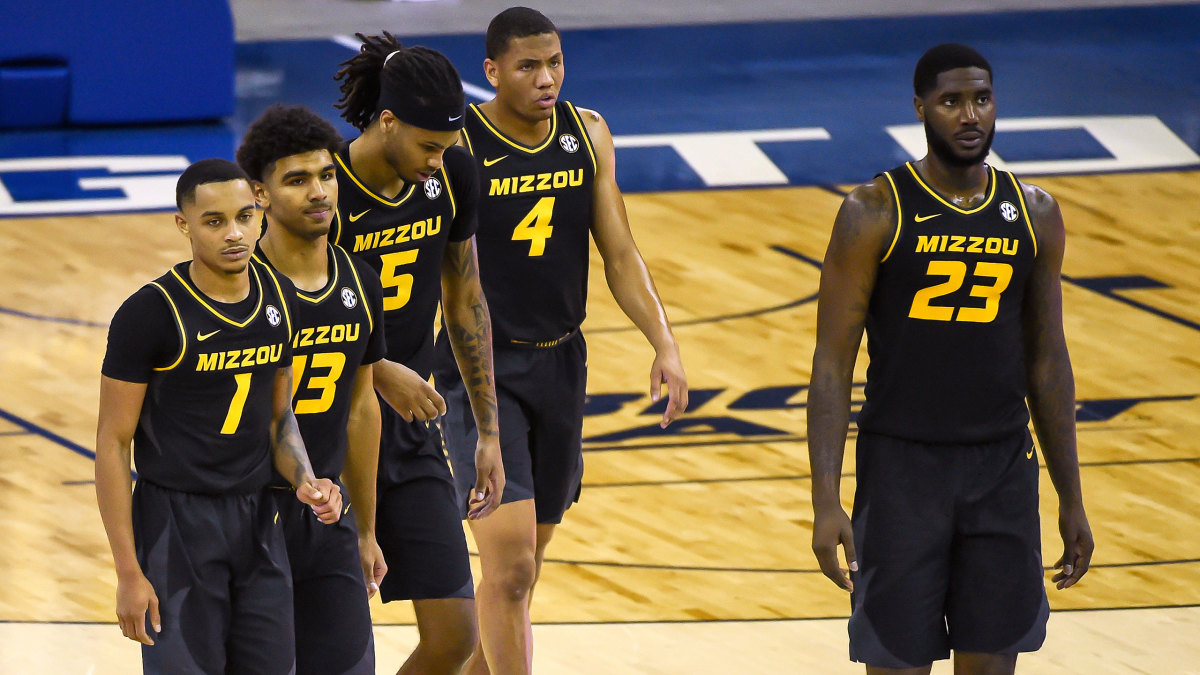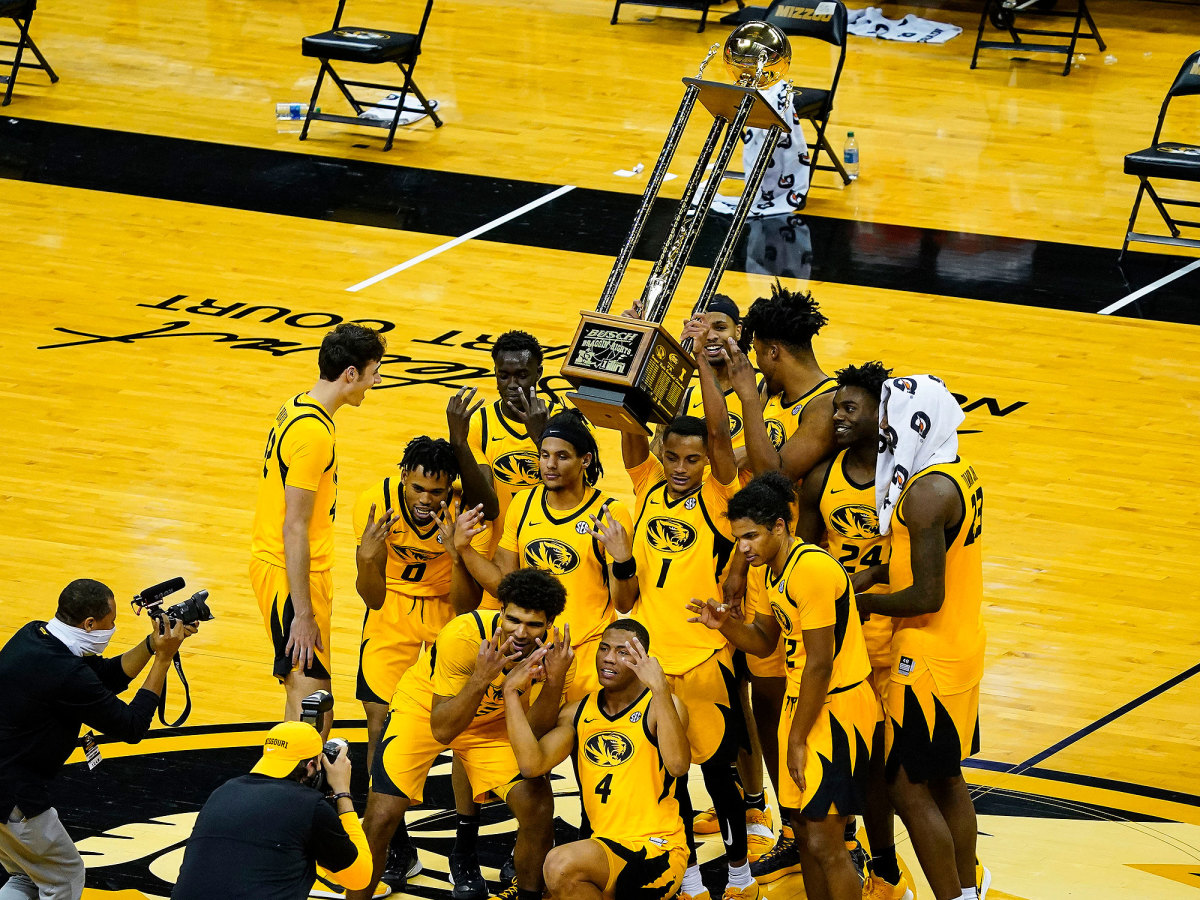In This COVID Year, Experience Proving Critical for Surging Missouri
Whoever coined the phrase “age before beauty” couldn’t have known how relevant it would be to the 2020 college basketball season.
As droves of coaches around the country grumble about the lack of chemistry plaguing their freshman- and newcomer-laden teams, a byproduct of the COVID-19 pandemic limiting summer training and general team-building practices, veteran squads like Missouri are flourishing.
“We’re just older and more experienced more than anything,” Missouri junior point guard Xavier Pinson says. “That brings the chemistry and it’s up from there.”
That much is evident in Missouri’s 5–0 start, which included a top-10 win over Illinois and has earned the Tigers an appearance in the men's AP Top 25 for the first time since 2014.

The No. 14 Tigers host Bradley at 7 p.m. ET Tuesday before their big matchup with No. 8 Tennessee on Dec. 30.
“With COVID disrupting everything, having a group that’s already like a family and knows what to expect has been big for us,” Pinson says. “It gives us a big advantage.”
Kentucky coach John Calipari shares Pinson’s sentiment on experience and has pointed to the Wildcats’ lack thereof as the key reason for his team's abysmal start. This year, Calipari has his typical stable of freshman studs projected for NBA riches come June, but the Wildcats have opened the season 1–5, their worst start to a season since 1926–27.
“We have 10 new players who don’t know each other,” Calipari said last week before a 75–63 loss to North Carolina.
The Tigers don’t just know each other. They consider each other family, even referring to one another as brothers.
Missouri returned 88% of its scoring, including its top seven scorers, from last year’s roster. This season the Tigers’ top four scorers are all seniors and juniors.
“It’s not just about the experience with this group,” says Missouri coach Cuonzo Martin. “They have that, but they’re also really talented. This group really cares about each other because they’ve been through the fire together. It’s brought them closer and that’s displayed on and off the court.”

The biggest hurdle for Martin’s crew was always health related. In the past three years, the Tigers have had players miss a combined 134 games with injuries.
Last season starters Jeremiah Tilmon and Mark Smith missed extensive time due to a foot stress fracture and a lower back injury, respectively. Additionally, Dru Smith had to fight through an ankle injury that limited his effectiveness during key stretches.
“COVID is an adversity we’re all dealing with,” Martin says. “It’s not the same, but from a standpoint of adversity, these guys have experienced that a lot over the last few years. It’s been rough for them, but it’s built stronger players and better players.”
It also built the Tigers’ confidence. When asked if he and his teammates were surprised with their start to the season, Pinson matter-of-factly says, “Not at all.”
“We all knew that we had this capability,” he continued. “We just needed to get healthy. We are now and we’re playing well. It was that simple for us.”
To combat the mental strain of dealing of the unpredictability, isolation and ups and downs of pandemic life as a college athlete, Martin instills into his players the importance of perspective. That’s a practice Pinson says he’ll “definitely” implement on Friday when he experiences Christmas over Zoom with his family.
“You have to value the little things in life; you’re able to eat food, you’re at a great university, you’re able to get in a car and drive,” Martin says. “I never had a car growing up. My mom never had a car growing up; you can’t neglect the small things in life. Yeah, we want to compete on the floor, and we want to win at the highest level, but think about how much we take for granted.”
The Tigers will need premium focus for Bradley (6–2), which boasts a similar veteran-led squad and is riding a three-game winning streak.
Still, with Christmas and a highly anticipated matchup with Tennessee looming five days after, Pinson admitted it’s hard not to look ahead.
“We all know what’s next, so it can be tough,” says Pinson. “You just have to train your mind to focus on the task in front of you. That’s how we prepare here. You have to block out everything else. The work isn’t just on the court. It’s in your head too. Yeah, it’s hard, but we only know how to work hard. That’s what got us to this point.”
